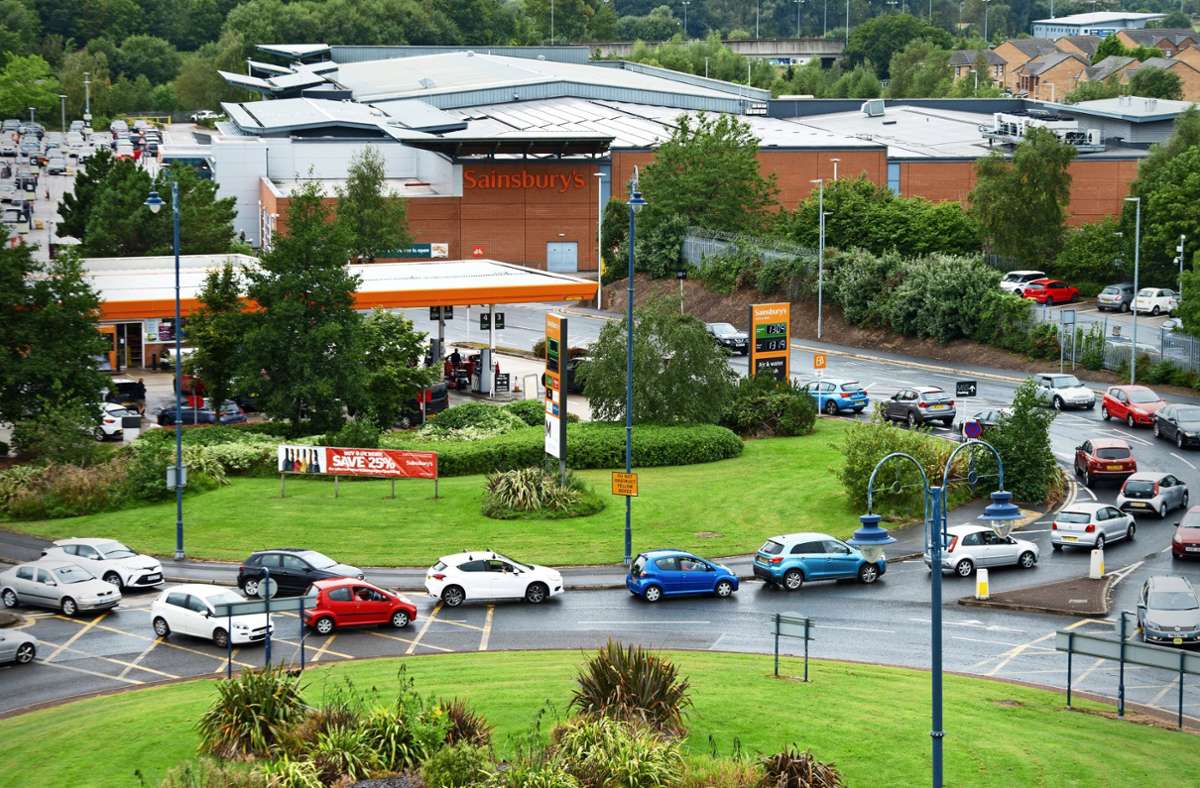The British government has now called on the army to help make up the shortfall of around 100,000 truck drivers. However, so far it is planned to train only 150 soldiers on tank trucks. Meanwhile, delivery problems are growing everywhere.
LONDON – Fearing a further escalation of Great Britain’s gasoline crisis, Boris Johnson’s government has now asked for help from the military. Soldiers in a hurry to be trained as tanker truck drivers stand ready to roll out on the streets of the UK. However, initially it is only about 150 soldiers, while oil companies are said to lack about a thousand drivers to deliver fuel to gas stations. In addition, the preparation of those concerned for such a task should take about ten days. Johnson’s critics complain that the government has done “too late and too little” – and “nothing at all” can be seen by the prime minister himself in this crisis.
Meanwhile, long queues formed again on Tuesday when arriving at gas stations, especially in urban areas of England. A large number of gas stations were completely closed again due to the lack of gasoline.
Drivers panic about trying to refuel
Since last Saturday, British motorists have panicked and tried to refill their tanks everywhere after British energy company BP previously reported delivery problems. The rush to the petrol pumps exacerbated the problem within a short time – and drained many gas stations.
On Tuesday, the government believed it was seeing the first signs of “reducing the situation”. However, the rush was still enormous at most gas stations. In many places, police had to withdraw to secure access to gas stations and prevent traffic jams. Many gas stations in the country even reported physical fights between drivers during the day.
The medical staff complains bitterly
And this has consequences: doctors, nurses and ambulance drivers complained bitterly that they could not do their job. “We have a real problem here that healthcare workers cannot do their jobs,” the British Medical Association said.
“We can’t stand in line to get petrol somewhere for two to three hours when we need to care for our patients,” a BMA spokesperson said. Many associations have warned that anyone undertaking such activity should be given immediate access to petrol – ideally via private petrol stations whose petrol is designated for “key workers”, for workers in key areas.
Most London economists vacillated between fear and hope on Tuesday. They said that if the situation eases next week, the economic damage will likely remain limited.
Losing a job can be dangerous
If the crisis lasts longer, the loss of business could have a serious impact, warned RSM, a management consulting firm: “Especially as the lack of truck fuel and delivery vehicles will exacerbate the shortage of freight transport, which is already worrying for us.”
Doubts were also raised due to the government’s announcement that it would issue an additional 5,000 work visas to truck drivers from the European Union and other parts of the world in order to provide short-term treatment. These visas must be valid for three months.
Due to the bureaucracy inevitably associated with this, however, the arrival of such drivers cannot be expected before the end of October. Experts see 5,000 as too low because the delivery of many other goods is currently being disrupted. After all, there is currently a shortage of about 100,000 qualified drivers in Great Britain.
Even issuing short-term visas is difficult for the government
The government had already found it difficult to issue 5,000 short-term visas – because it wanted to reserve the jobs in question for British drivers after Brexit. Drivers from the continent are only “undermining” their British colleagues, Johnson’s ministers have said several times over the past few days.
Rachel Reeves, a finance spokeswoman for the opposition Labor Party, said the government measure was woefully inadequate: “Most people don’t care if the truck is being driven by a British or foreign driver – as long as petrol is coming into gas stations and they can actually fill their cars with it and as long as we have groceries in Our supermarkets.
It is also quite open whether European drivers ever want to give up their EU jobs and move to Great Britain for three months to help here. The reaction of the Dutch Truckers Association was cited most heavily on Tuesday. “The drivers from the European Union that we spoke to will not come to the UK on a short-term visa to help Brits out of the things they are responsible for,” she said.

“Alcohol buff. Troublemaker. Introvert. Student. Social media lover. Web ninja. Bacon fan. Reader.”






More Stories
The Body Shop files for bankruptcy in the UK
Kaspersky: All employees in the US must leave – business activities will be terminated
Resettlement in the United States and its Impact on U.S.-Focused Firms